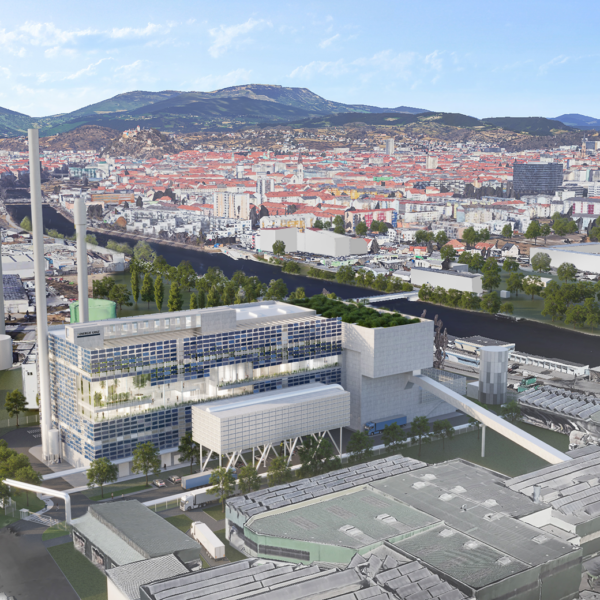Energiewerk Graz & EKV
An indispensable building block of the decarbonisation strategy: independence and security through local circular economy and sector coupling.

The projects:
The district heating supply in the greater Graz area has developed extremely positively in recent years and has contributed significantly to improving the air quality in the Graz basin. The City of Graz, the Province of Styria, Holding Graz, Energie Graz and Energie Steiermark have been joining forces for years to promote the decarbonisation strategy.
Despite these efforts and successes, natural gas is currently an essential primary energy source for the district heating supply in the greater Graz area. In addition to the environmental aspect of CO2 savings and security of supply and disposal, the realisation of alternative projects for gradual independence from natural gas imports is an imperative, especially in view of the current geopolitical situation: The operating times of the existing gas boiler plants at the Puchstraße site can be reduced by Energiewerk Graz.
The “Energiewerk Graz” and “Energetic Sewage Sludge Utilisation Plant in Gössendorf” (EKV) projects represent an important building block in the decarbonisation strategy.
In the first phase, a feasibility study was carried out; in the second phase, preparations are now being made for the environmental impact assessment of the Graz energy plant, which will start in 2023 and will examine aspects relevant to the environment and residents. If the results of the assessment are positive, a construction decision will be made and the project can be implemented from 2027 to 2029.
The site of the district heating power plant in Graz (Puchstraße) was identified as the most suitable location for the energy plant in Graz. For the energetic sewage sludge utilisation (EKV), the investigation revealed the site of the municipal sewage treatment plant in Gössendorf as the location.